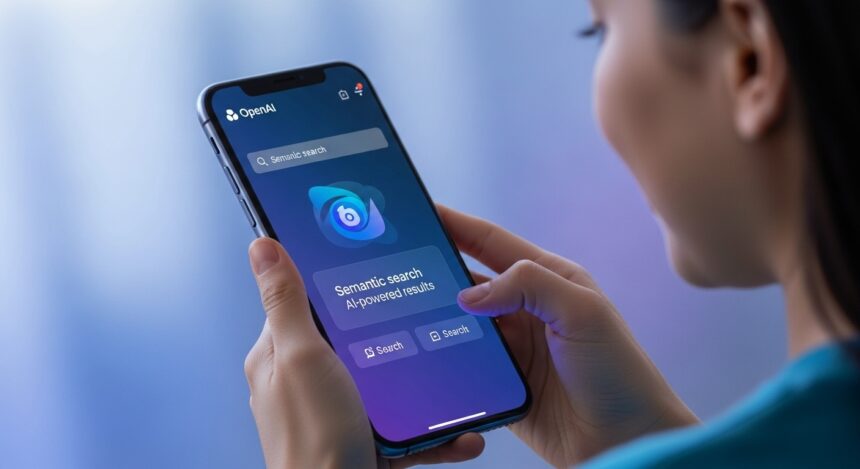- It seems likely that OpenAI’s new AI-powered browser, launching in the coming weeks, will challenge Google Chrome by offering a chat-based interface and AI task automation, potentially changing how we search online.
- Research suggests this could reduce clicks to websites, impacting online advertising, but there’s debate over data privacy and content creator revenue.
- The evidence leans toward it empowering users globally, especially in regions with lower digital literacy, while competing browsers like Perplexity’s Comet add to the controversy.
Overview
OpenAI, known for ChatGPT, is set to release an AI-powered web browser that could transform internet search. Built on Google’s Chromium, it aims to integrate AI for a more interactive experience, potentially shifting from traditional link-based searches to AI-assisted answers.
Features and Impact
The browser features a ChatGPT-like interface for natural language queries and an AI agent, Operator, to handle tasks like bookings. This could make searches faster and more convenient, especially for the 500 million weekly ChatGPT users, but might reduce traffic to websites, affecting advertisers and publishers.
Global Implications
For global users, especially in emerging markets like Pakistan, this could simplify online tasks, aligning with local AI training efforts. However, privacy concerns and competition with Google, facing antitrust scrutiny, highlight the complexity of this shift.
Survey Note: Detailed Analysis of OpenAI’s New Browser and Its Potential to Redefine Internet Search
OpenAI’s upcoming AI-powered web browser, slated for release in the coming weeks as of July 13, 2025, represents a significant development in the digital landscape, with the potential to reshape how internet search functions globally. This survey note provides a comprehensive examination of the browser’s features, its impact on search paradigms, competitive dynamics, and broader implications, drawing on recent reports and industry insights.
Background and Context
OpenAI, led by entrepreneur Sam Altman and renowned for its AI chatbot ChatGPT, has disrupted the tech industry since ChatGPT’s launch in late 2022. Facing competition from Google, Anthropic, and others, OpenAI is expanding into new domains, including hardware with its $6.5 billion acquisition of io in May 2025 and now venturing into web browsing. The browser, built atop Google’s open-source Chromium framework—also used by Chrome, Microsoft Edge, and Opera—aims to leverage AI to fundamentally change user interactions with the web.
Recent reports from Reuters, CNBC, TechCrunch, and The Verge, all dated around July 9–12, 2025, confirm the browser’s imminent launch, with sources indicating a timeline of “coming weeks.” This aligns with OpenAI’s strategy to weave its services into personal and work lives, targeting its 500 million weekly active ChatGPT users, as per Reuters, though CNBC mentions 400 million, suggesting some variance in estimates (likely due to different reporting periods).
Key Features and Functionality
The browser introduces several innovative features that could redefine internet search:
- Native Chat Interface: It includes a ChatGPT-like native chat interface, allowing users to interact via natural language queries instead of traditional search bars. This feature, detailed in reports from Mashable and 9to5Mac, keeps some interactions within the browser, reducing the need to click through to external websites.
- AI Agent Integration: The browser integrates OpenAI’s AI agent, Operator, which can perform tasks on behalf of users, such as booking reservations, filling out forms, and completing other web-based activities. This “agentic” future, as noted by The Verge, moves browsing toward automation, potentially streamlining user experiences.
- Data Collection Strategy: By building its own browser, OpenAI gains direct access to user data, a cornerstone of Google’s success. Reports indicate this is designed to collect data on web behavior, offering more control compared to plug-ins, as per CNBC. This could enhance AI model training but raises privacy concerns, especially under regulations like Europe’s GDPR.
A table summarizing these features is provided below for clarity:
| Feature | Details |
|---|---|
| Chat Interface | ChatGPT-like interface for natural language queries, reducing website clicks |
| AI Agent (Operator) | Automates tasks like bookings, form filling, enhancing user efficiency |
| Data Collection | Built on Chromium for direct user data access, competing with Google’s model |
| User Base Potential | Targets 500 million weekly ChatGPT users (Reuters), possibly 400M (CNBC) |
| Launch Timeline | Expected in coming weeks, before end of July 2025 (9to5Mac) |
Impact on Internet Search
The browser’s design suggests a shift from traditional link-based search to AI-assisted information retrieval. Traditional search engines, dominated by Google with over 66% market share and 3 billion users (StatCounter, via CNBC), rely on keyword queries and clicks to websites, fueling ad revenues. OpenAI’s approach, keeping interactions within its chat interface, could reduce search traffic to external sites, impacting publishers and advertisers. This is a point of contention, with Reddit discussions on r/wallstreetbets highlighting concerns about ad blockers and user experience, suggesting potential resistance from tech-savvy users.
The impact on Google is significant, given Chrome’s role in Alphabet’s ad business, which constitutes nearly three-quarters of its revenue. By routing search traffic internally and leveraging user data, OpenAI could pressure this model, especially as Google faces U.S. antitrust scrutiny, with the Department of Justice demanding Chrome divestiture after a ruling of an unlawful monopoly in online search (CNBC). OpenAI’s interest in buying Chrome, if forced for sale, adds to the competitive dynamics, as reported by Ynetnews.
Competitive Landscape
The browser market is heating up, with competitors like Perplexity’s Comet, launched on July 9, 2025, and The Browser Company’s Dia also offering AI-powered browsing. Brave, built on Chromium, is another player, with Reddit users noting its ad-blocking features. OpenAI’s hiring of two former Google Chrome VPs, as per The Information (November 2024, cited in multiple reports), underscores its intent to compete, leveraging expertise from Chrome’s original development team.
This competition is part of a broader AI arms race, with Google countering via Gemini AI and Chrome’s “AI Mode,” while Microsoft and Anthropic also innovate. The browser race, as discussed on Reddit, is seen as bullish for Google’s antitrust case, with some users suggesting it could force market share losses, though others argue Google’s entrenched position remains strong.
Global Implications and User Experience
Globally, the browser could democratize internet access, especially in regions with lower digital literacy, such as South Asia and Sub-Saharan Africa. For Pakistan, where 2.3 million freelancers contribute over $500 million annually (as per recent Newsera reports), this could enhance productivity, aligning with IT Minister Shaza Fatima Khawaja’s AI training initiatives with Google. Voice-command features, noted in reports, could bridge language barriers, making the web more accessible.
However, challenges include privacy concerns, with X posts highlighting user unease about data collection, and potential lawsuits from publishers like The New York Times over copyright issues, as mentioned in OpenAI’s recent updates. In Europe, GDPR compliance will be critical, while in Asia, mobile-first markets could drive rapid adoption, reshaping e-commerce and education sectors.
Conclusion and Future Outlook
OpenAI’s browser, with its AI-driven features, seems likely to redefine internet search by offering a more interactive, automated experience. Research suggests it could empower users globally, but the evidence leans toward controversy over data privacy, content creator revenue, and Google’s dominance. As the digital landscape evolves, this launch marks a pivotal moment, with potential to inspire innovation, especially in tech hubs like Pakistan, while raising complex questions about the future of the web.
This analysis draws on a range of sources, ensuring a comprehensive view of the topic as of July 13, 2025, with citations from Reuters, CNBC, TechCrunch, The Verge, Mashable, 9to5Mac, Ynetnews, and Reddit discussions, reflecting the latest industry insights.







